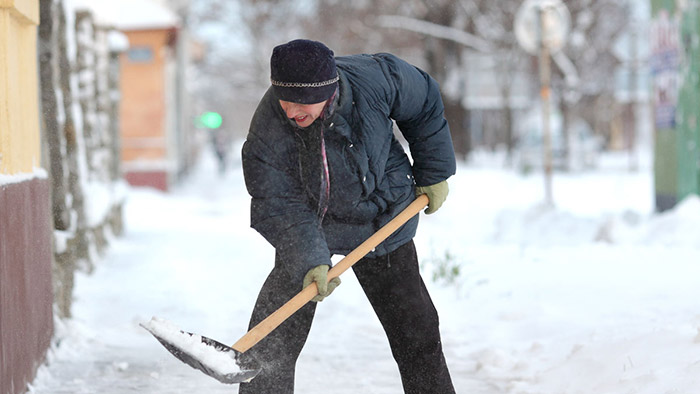It’s one of the most dreaded parts of winter: shoveling snow out in the cold. But can the cold weather and shoveling cause a heart attack?
Dr. Saadeddine Dughman, an Interventional Cardiologist with the Florence Wormald Heart and Vascular Institute at St. Elizabeth, weighs in on the debate.
“Cold weather alone can affect your heart – add in the physical exertion of shoveling snow and you can increase the risk of a heart attack, especially if you have predisposed risk factors,” says Dr. Dughman. “Sudden changes in temperature exposure, like going from heated indoors to very cold outdoors, can also impact your heart.”
Dr. Dughman explains that the body produces adrenaline in extreme temperatures, which strains the heart. Here’s why:
- Cold air constricts arteries, which reduces circulation and oxygen supply to the heart.
- Winter weather causes the heart to work harder to maintain body heat and raises blood pressure.
- Cold temperatures can increase the blood’s viscosity, leading to clot formation in the coronary arteries and potentially causing a heart attack.
Dr. Dughman suggests wearing heavy clothes to avoid significant body temperature changes. Layers will help you stay as warm as possible. Be sure to add a hat, mittens, a scarf, warm boots and a thick winter coat.
Signs of Heart Attack
If you’re outside in cold weather – shoveling or enjoying other activities – and experience any of the following symptoms – stop immediately and seek emergency medical help.
The warning signs of a heart attack can include:
- Chest pain, discomfort or heaviness.
- Pain, numbness, or tingling in your jaw, back, neck or shoulders.
- Shortness of breath or difficulty breathing.
- Nausea or vomiting.
- Cold sweat.
- Dizziness.
- Sensation of heartburn.
St. Elizabeth Cares About Your Heart
When it comes to your heart, don’t wait to get the care you need. Call (859) 287-3045 to schedule an expedited appointment with one of our cardiologists or visit our website to find a location near you.

